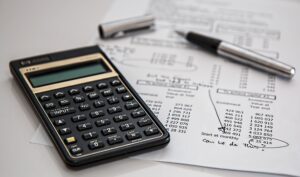While specific exemptions vary from state to state most manufacturers are aware that all states offer some type of sales & use tax exemptions for having operations located within their state. Manufacturers always capture all of the savings pertaining to sales tax exemptions on raw materials, machinery and equipment, but often overlook the utilities exemptions. Some jurisdictions exempt manufacturers from paying sales tax on energy sources, such as electricity, natural gas, and water, when used in the manufacturing process.
What Is a Manufacturer?
The definition as to what qualifies as manufacturing varies from jurisdiction to jurisdiction. The key is that manufacturing involves the transformation of raw materials or components into finished goods through a series of processes. Different business activities and operations that can be considered as manufacturing including assembly, fabrication, processing, machining, chemical production, printing, textile production, automative manufacturing, wood working, plastic molding, food and beverage production, pharmaceutical manufacturing, aerospace manducating, and packaging.

What Is a Utility Study?
A utility study, in the context of sales and use tax, refers to an examination and analysis of utility usage within a business to determine the portion of utility expenses that may qualify for tax exemptions. The goal of a utility study is to identify and document the usage of utilities—such as electricity, natural gas, water, and other energy sources—that are related to qualifying activities, typically those associated with manufacturing or other specified processes.
The sales and use tax regulations in most jurisdictions provide exemptions for certain types of utility usage, particularly when those utilities are consumed in specific activities that contribute to the production process. By conducting a utility study, businesses aim to segregate and document the utility consumption that qualifies for these exemptions, with the ultimate objective of reducing or recovering sales and use taxes paid on non-exempt utility usage.
What Are the Steps to Doing a Utility Study?
Performing a utility study to obtain a refund of sales and use tax for utilities used in the manufacturing process involves a systematic approach to document and analyze utility consumption. The process may vary based on jurisdiction, but here is a general guide:
- Understand local regulations and identify eligible utilities
- Document utility usage, determine exempt usage, and quantify qualifying and non-qualifying usage
- Prepare legally required documentation including exemption forms
- Submit refund, communicate and negotiate refund claim withing taxing authorities
- Adjust policies and procedures to minimize liabilities move forward
The utility study process requires careful documentation and adherence to tax regulations to support any claims for exemptions or refunds. It is advisable for businesses to work with tax professionals or consultants who specialize in sales and use tax matters to ensure that the study is conducted accurately and in compliance with applicable laws.





